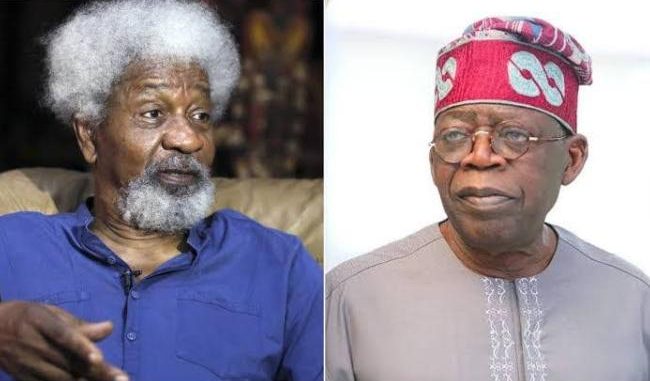
Nobel Laureate Professor Wole Soyinka has fiercely criticized President Bola Tinubu’s decision to suspend Rivers State Governor Siminalayi Fubara, labeling it an “over-excessive use of power” and urging the embattled governor to seek immediate redress in court. The suspension, announced late Saturday by the Presidency, has ignited a firestorm of reactions across Nigeria, with political heavyweights and citizens alike weighing in on the escalating crisis in Rivers State.
In a strongly worded statement issued on Sunday, Soyinka accused Tinubu of overstepping his constitutional bounds, arguing that the move undermines democratic principles and sets a dangerous precedent for executive overreach. “This is not the Nigeria we fought for,” Soyinka declared. “Governor Fubara should not sit idly by; he must take this to the courts now and let the law prevail over political machinations.”
Watch Video:
The Presidency, in its defense, cited unspecified “gross misconduct” and “actions detrimental to national unity” as justification for Fubara’s suspension. A terse statement from State House spokesperson Bayo Onanuga claimed the decision followed exhaustive consultations and was in line with constitutional provisions. However, the lack of detailed evidence has fueled speculation and skepticism among analysts and opposition figures.
Former President Goodluck Jonathan, a native of the Niger Delta, also waded into the controversy, calling the suspension “a troubling development” that threatens stability in the oil-rich region. “Rivers State deserves leadership that reflects the will of its people, not imposed dictates from Abuja,” Jonathan said during a brief address in Yenagoa on Sunday.
The suspension comes amid a protracted political feud between Fubara and his predecessor, Nyesom Wike, now the Minister of the Federal Capital Territory. Analysts suggest Tinubu’s intervention may be an attempt to bolster Wike’s influence in Rivers State, a key political battleground ahead of the 2027 elections. However, the move has backfired, drawing condemnation from civil society groups and opposition parties, including the Peoples Democratic Party (PDP), which described it as “an assault on democracy.”
In Port Harcourt, tensions are running high. Pro-Fubara supporters took to the streets on Sunday afternoon, chanting slogans and demanding his reinstatement. “Tinubu cannot treat Rivers like his personal fiefdom!” shouted one protester, who identified himself as Chidi, a local trader. Security forces have been deployed to maintain order, with reports of sporadic clashes near the Government House.
Legal experts argue that the suspension’s legitimacy hinges on murky constitutional grounds. Section 188 of the 1999 Constitution allows for a governor’s removal only through impeachment by the state House of Assembly, a process that has not been initiated in Rivers. “What we’re seeing here is an executive fiat dressed up as law,” said Dr. Chike Okonkwo, a constitutional lawyer based in Lagos. “The courts must intervene to clarify this abuse.”
Fubara himself has remained silent since the announcement, though sources close to the governor say he is consulting with his legal team and political allies. A senior aide, speaking anonymously, hinted at an impending lawsuit, stating, “The governor will not let this stand. Nigerians will hear from him soon.”
As the crisis unfolds, all eyes are on the judiciary, with Soyinka’s call for legal action echoing across the political spectrum. Whether Fubara heeds the advice or opts for a political resolution remains uncertain, but one thing is clear: Rivers State has become the latest flashpoint in Nigeria’s fragile democracy.
Leave a Reply